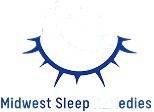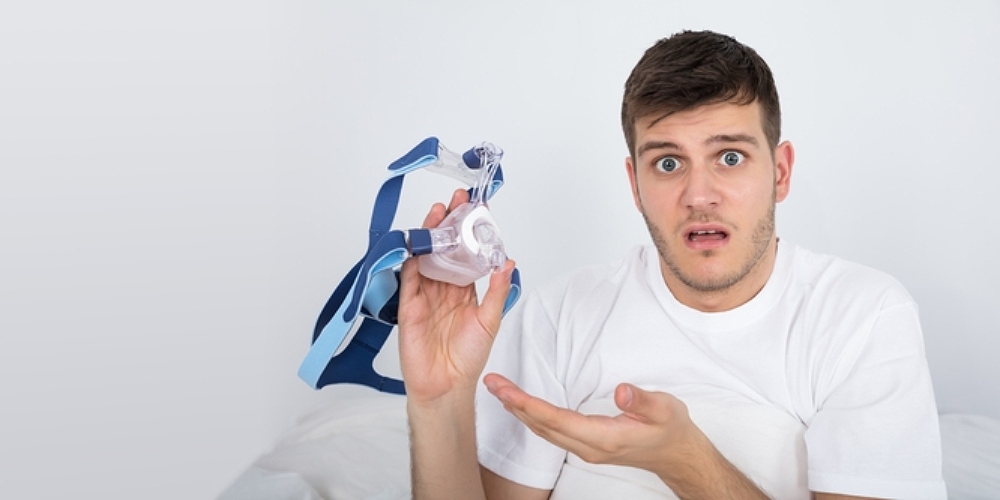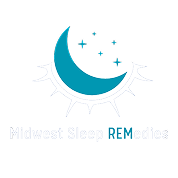Key Takeaways:
- CPAP is the most effective treatment for sleep apnea but isn’t tolerated well by everyone.
- Oral appliance therapy offers a quieter, more comfortable alternative for mild to moderate cases.
- Lifestyle changes like weight loss and sleep position adjustments can also reduce symptoms.
- Consulting a sleep specialist can help tailor the best non-CPAP treatment for your needs.
If you’ve been diagnosed with sleep apnea, there’s a good chance that continuous positive airway pressure (CPAP) therapy was the first treatment recommended to you. CPAP machines are often considered the gold standard, especially for obstructive sleep apnea (OSA). However, not everyone finds CPAP comfortable or effective in their lifestyle. Overall, this leads many to ask: Can you treat sleep apnea without a CPAP? The good news is, yes—treating sleep apnea without CPAP is possible for some individuals, and there are several alternative treatments for sleep apnea worth exploring.
In this blog, we’ll dive into the pros and cons of these alternatives, especially oral appliance therapy, and explain why CPAP doesn’t work for everyone. By understanding your options, you’ll be better equipped to find a sleep apnea solution that truly fits your needs.
CPAP: The Gold Standard for Treating Sleep Apnea
Continuous Positive Airway Pressure (CPAP) therapy is widely recognized as the gold standard for treating obstructive sleep apnea (OSA). By delivering a steady stream of air through a mask, CPAP keeps the airway open during sleep, effectively preventing apneas and snoring.
This leads to improved sleep quality, increased daytime alertness, and a reduced risk of serious health conditions such as high blood pressure, heart disease, and stroke. Regular use of CPAP can significantly enhance the quality of life for individuals with OSA. While some may initially find the device uncomfortable, modern advancements have made CPAP machines quieter, more compact, and easier to use.
What Is CPAP?
CPAP stands for Continuous Positive Airway Pressure. It involves wearing a mask connected to a machine that delivers a constant stream of air, keeping your airway open while you sleep. Thus, CPAP is highly effective for moderate to severe obstructive sleep apnea. Additionally, it can dramatically reduce symptoms like loud snoring, gasping, and daytime fatigue.
Why CPAP Doesn’t Work for Everyone: Common Challenges Explained
Although CPAP is highly effective, it’s not without its limitations; and that’s why so many people look for alternative treatments for sleep apnea. Let’s take a closer look at why CPAP doesn’t always work for every patient.
1. Discomfort and Claustrophobia
Overall, one of the most common complaints is that the mask feels too restrictive or uncomfortable. Some patients feel claustrophobic or anxious when using CPAP, which makes it difficult to fall or stay asleep.
2. Skin Irritation and Pressure Sores
Because CPAP masks must fit tightly to be effective, they can cause skin irritation, rashes, or even pressure sores. Even with mask liners or different mask types, some users still struggle with this issue.
3. Noise Disruption
Though newer CPAP models are much quieter, the machine’s hum—and especially the noise from mask leaks, can disturb both the user and their bed partner.
4. Dry Mouth or Nasal Congestion
Another frequent side effect is dry mouth or nasal congestion, even when using a humidifier. Furthermore, this can lead to sore throats, nosebleeds, or frequent nighttime awakenings.
5. Poor Compliance and Abandonment
Unfortunately, up to 50% of CPAP users either stop using it entirely or don’t use it consistently enough for it to be effective. Lack of consistent use leads to ongoing sleep deprivation and the return of apnea-related health risks.
Because of these challenges, exploring sleep apnea treatment without CPAP becomes more than just a preference; it becomes a necessity for some.
Alternative Treatments for Sleep Apnea
Beyond CPAP and oral appliances, several other alternative treatments for sleep apnea are available, depending on the severity and cause of your condition.
1. Positional Therapy
Some people only experience sleep apnea when sleeping on their back. Thus, positional therapy trains the body to sleep on the side, which can reduce or prevent airway collapse. This may involve wearable devices or special pillows.
2. Surgery
In certain situations, surgical options like UPPP (uvulopalatopharyngoplasty), Inspire therapy (a surgically implanted nerve stimulator), or nasal surgery may be recommended. These are typically considered when other treatments fail.
3. Myofunctional Therapy
This involves exercises to strengthen the muscles around the airway. While still being studied, early evidence suggests that consistent practice can lead to modest improvements in mild to moderate cases.
CPAP vs. Oral Appliance: Which Treatment Is Right for You?
When it comes to sleep apnea treatment, CPAP and oral appliance therapy are the two most common non-surgical options. Thus, understanding the differences between them is the first step toward choosing the right path for you.
What Is an Oral Appliance?
Oral appliances, also known as mandibular advancement devices (MADs), are custom-fitted mouthpieces that slightly reposition your jaw forward. Overall, this subtle movement helps keep your airway open, similar to the way a CPAP does; just without the machine or mask.
How Do They Compare?
While CPAP is generally more effective, particularly in severe cases, oral appliances have become increasingly popular, especially for those with mild to moderate sleep apnea. Let’s explore some key comparisons:
| Feature | CPAP | Oral Appliance |
|---|---|---|
| Effectiveness | High (especially for severe OSA) | Moderate (best for mild to moderate OSA) |
| Comfort | Can be uncomfortable, especially at first | Generally, more comfortable and less intrusive |
| Portability | Bulky for travel | Small and travel-friendly |
| Ease of Use | Requires nightly setup and cleaning | Easy to use and maintain |
| Side Effects | Mask leaks, dry mouth, skin irritation | Jaw discomfort, bite changes |
Ultimately, the best sleep apnea treatment without CPAP depends on your individual condition, preferences, and lifestyle.
Looking for a CPAP Alternative for Sleep Apnea?
Discover custom oral appliances designed to treat sleep apnea comfortably and effectively.
Pros and Cons of Oral Appliance Therapy for Sleep Apnea
For many people, oral appliance therapy presents a promising and more tolerable solution. But like any medical treatment, oral appliance therapy comes with its advantages and drawbacks.
Pros
Non-Invasive and Comfortable
Oral appliances are easy to wear and usually require only a short adjustment period. Unlike CPAP, there are no tubes or loud machines to worry about. Thus, this makes them more acceptable for people who struggle with the discomfort or claustrophobia CPAP masks can cause.
Discreet and Travel-Friendly
Because they’re compact and resemble sports mouthguards or retainers, oral appliances are easy to pack and travel with. Additionally, there’s no need to lug around equipment or deal with airport security questions.
Improved Compliance
Many patients who abandon CPAP find they can actually stick to oral appliance therapy. As a result, comfort and convenience often lead to better long-term adherence, which is crucial for managing sleep apnea effectively.
Less Noise and Disruption
Since oral appliances make no noise, they can also improve your bed partner’s sleep quality, something CPAP machines often disrupt.
Cons
Limited Effectiveness for Severe Cases
Firstly, one of the biggest limitations of oral appliances is that they may not adequately treat severe sleep apnea. Hence, in such cases, CPAP may still be the most reliable option.
Potential for Jaw Pain or TMJ Issues
Furthermore, some users experience jaw soreness, tooth movement, or temporomandibular joint (TMJ) discomfort. Thus, custom adjustments by a dentist trained in sleep medicine can help minimize these risks.
Follow-Up Is Essential
All in all, oral appliances require regular follow-up appointments to ensure effectiveness. Additionally, adjustments may be needed as your bite or jaw alignment changes over time.
Not Covered by All Insurance Plans
While many insurance providers now recognize oral appliances as valid treatments, coverage may vary. It’s essential to check with your provider before committing.
Despite these downsides, oral appliance therapy remains a compelling option for treating sleep apnea without CPAP, especially if you’re dealing with mild to moderate cases.
Lifestyle Modifications to Treat Sleep Apnea
1. Weight Loss
In any case, obesity is a significant risk factor for sleep apnea. Thus, losing even 5–10% of your body weight can reduce symptoms or even eliminate sleep apnea in some cases. While not a quick fix, combining weight loss with other therapies can be highly effective.
2. Lifestyle Changes
Avoiding alcohol and sedatives before bed, quitting smoking, and maintaining good sleep hygiene can also help improve sleep apnea symptoms. Though these changes alone may not be enough, they support any primary treatment plan.
Conclusion
To sum up, treating sleep apnea without CPAP is not only possible but increasingly accessible. From oral appliance therapy to lifestyle changes and even surgical options, there are many paths to managing this condition effectively. While CPAP remains the gold standard, it’s not the only route; and for many, it’s not the right fit.
In any case, if you’re among those who find CPAP intolerable, don’t give up hope. Moreover, talk to your sleep specialist or a dentist trained in sleep medicine about alternative treatments for sleep apnea. By understanding the pros and cons of each option, you can take control of your sleep health and find a solution that lets you rest easy—literally. Ready to explore alternatives to CPAP? Don’t wait. The sooner you find the right fit, the sooner you can reclaim restful nights and energized days.
Have Questions About Disturbed Sleep?
Get in touch with us and learn more about our sleep services and sleep solutions and how we can help you sleep better.




